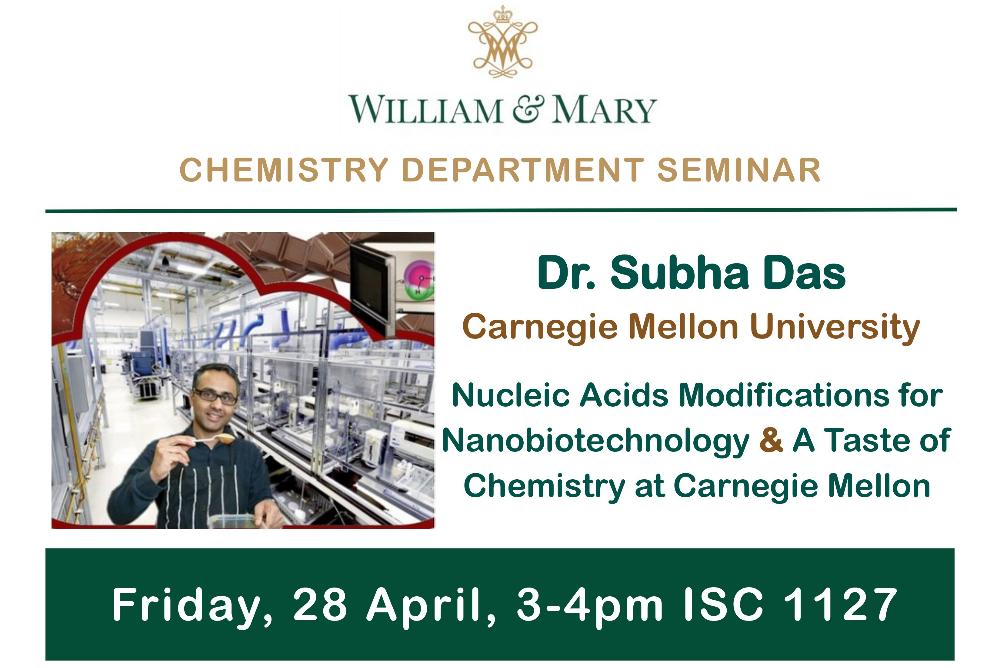W&M Featured Events
[PAST EVENT] Cheminar: "Nucleic Acids Modifications for Nanobiotechnology"
Location
Integrated Science Center (ISC), Room 1127540 Landrum Dr
Williamsburg, VA 23185Map this location

Nucleic Acids Modifications for Nanobiotechnology & A Taste of Chemistry at Carnegie Mellon
This talk will cover nucleic acid polymer conjugates and hybrids that are the result of combining synthetic and natural oligonucleotides or DNA and RNA molecules with synthetic polymers. These approaches have yielded rich dividends in a variety of materials such as bright fluorescent nanotags for imaging applications and auto-transfecting RNA agents for cellular delivery and gene knockdowns. The use of DNA tethers with exosomes – nanosized extracellular vesicles – can provide surface modified exosomes and exosome-polymer hybrids as powerful new agents for targeted delivery in cells and organisms for cancer and immune therapies.
The talk will also briefly discuss topics in education and teaching – the CMU Cloud Lab, the world’s first academic remote-controlled automated chemistry and life sciences facility, as well as some demos and tasting from the Kitchen Chemistry Sessions course.
Subha R. Das completed his PhD on the synthesis of nucleosides as antiviral and antibacterial agents followed by postdoctoral research on the molecular mechanisms of RNA based enzymes. Das is an Associate Professor in the Department of Chemistry at Carnegie Mellon University where he started his research lab in 2007. His research interests lie in the chemistry and modification of nucleic acids towards novel structures and function and their applications to biochemistry and nanobiotechnology. Recently Das has begun developing and conducting simple DNA based experiments towards training students in the use of a remote-controlled and automated ‘Cloud Lab’ facility. Das has also created The Kitchen Chemistry Sessions courses that draw on advances in molecular gastronomy to teach chemistry through the real-world context of food, cooking and molecular cuisine. Das's broader educational goals include communicating and advancing science, particularly chemistry, by making it palatable to a broader audience.
